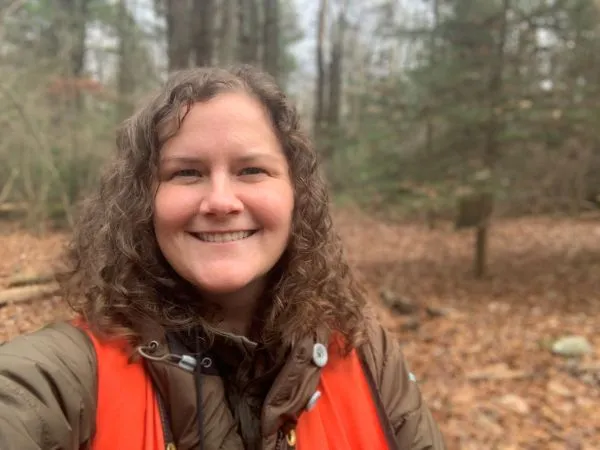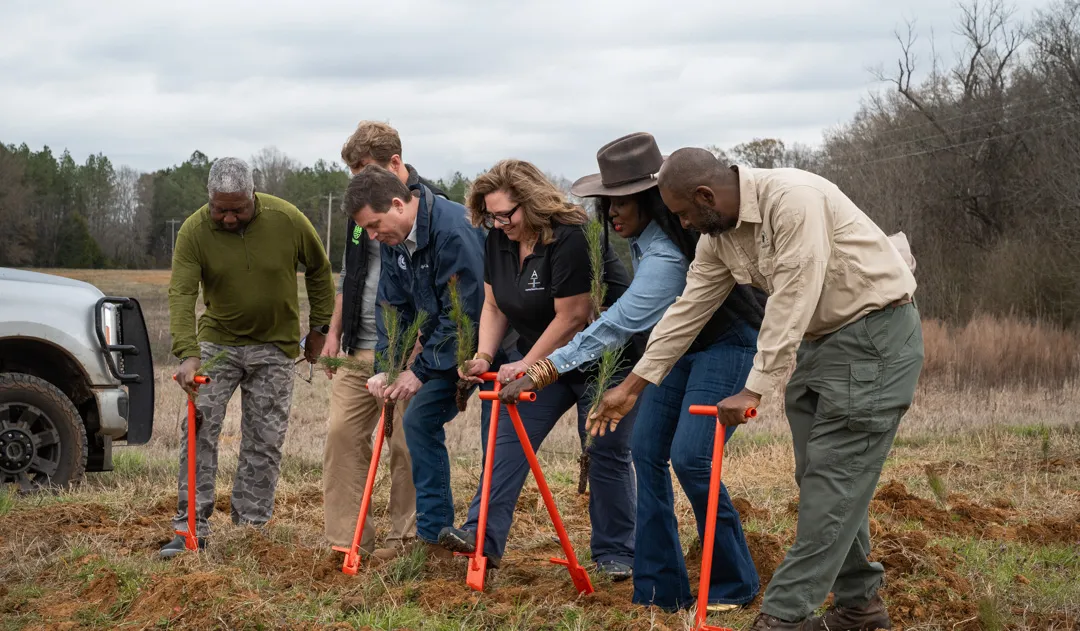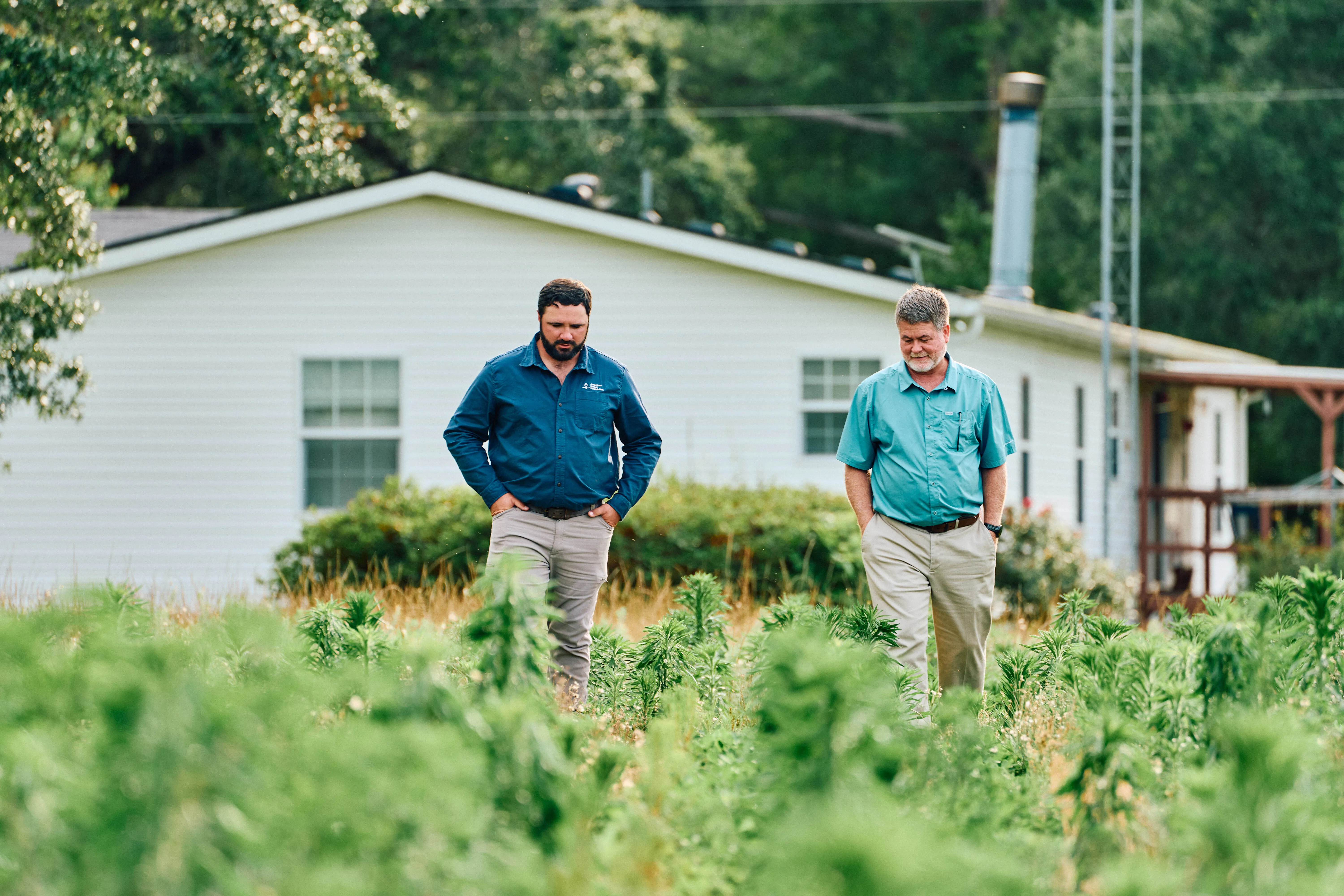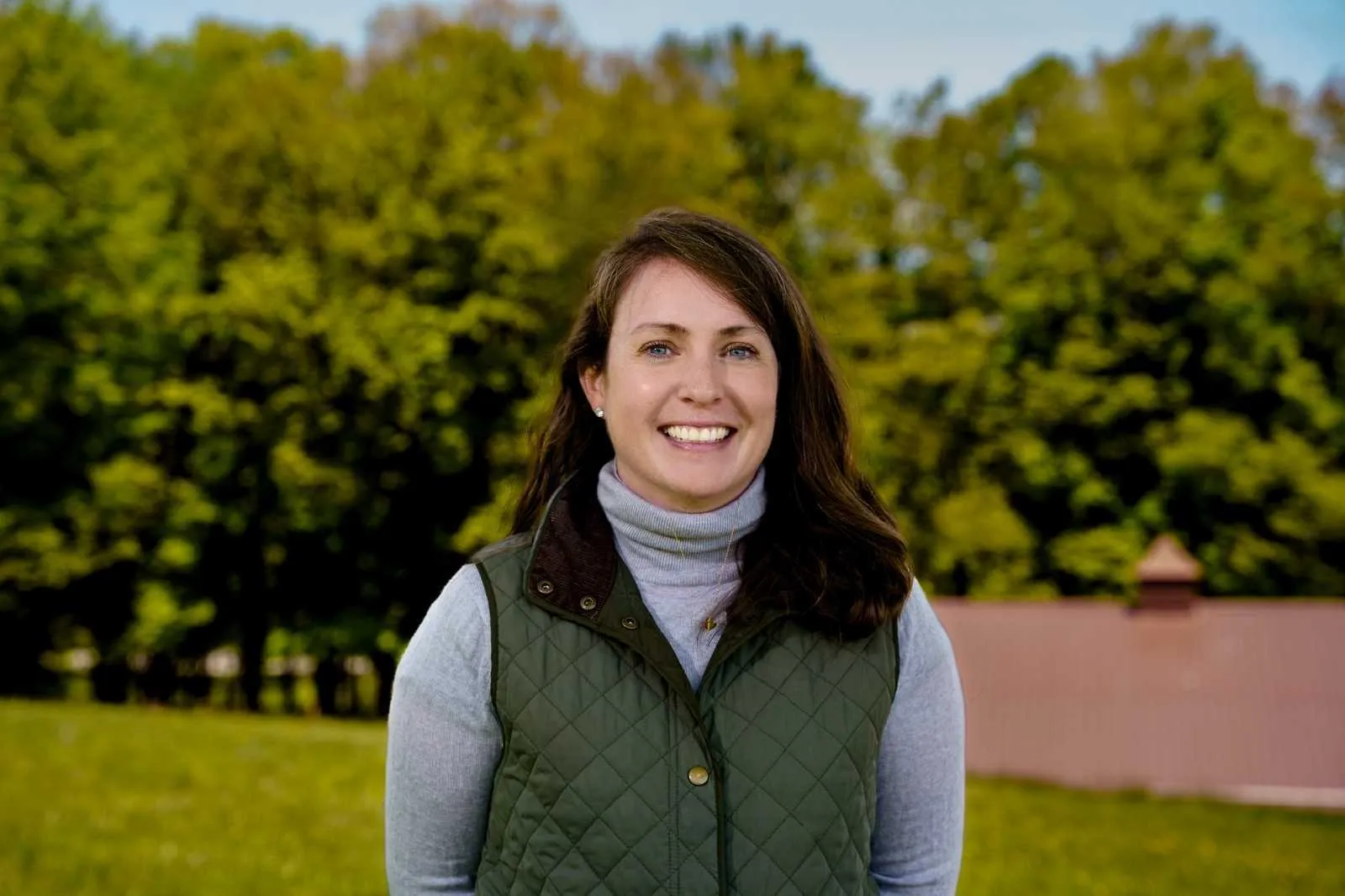Forester Spotlight: Sarah Hall
When you ask a landowner who they trust and go to to learn more about their woods, the frequent answer is their forester. Whether they are experienced stewards of their forest or just trying to figure out where to even begin, landowners go to foresters with their goals for their land and trust their forester to guide them along the process.
Unfortunately, landowners will often face barriers in meeting with foresters, whether it be cost or lack of forester capacity, which can result in it taking months or years to schedule a consultation. The Family Forest Carbon Program, developed by the American Forest Foundation and The Nature Conservancy to help family forest owners to improve forest health and address climate change, wanted to help landowners overcome this barrier to action. To do this, AFF has expanded our staff to include foresters who are dedicated to supporting landowners interested in enrolling in the program.
Take a second to meet one of our staff foresters who you’ll often find walking the trails with family forest owners in Pennsylvania, Sarah Hall.
Sarah Hall
State: Pennsylvania
Educational Background: B.S. Biology with a concentration in Environmental Biology and minor in Environmental Science and Chemistry (Millersville University)

Having grown up with the Allegheny National Forest as her playground, Sarah was surrounded and shaped by the forest. She loved playing in the woods, but as she grew older she recalled seeing the major impacts that human development was having on the landscape, particularly forest fragmentation and its effects on the ecosystem. Sarah now resides in northeastern Pennsylvania in the northern Poconos Mountains. Before joining as the Senior Forestry Manager at the American Forest Foundation, Sarah was the Program Manager of the Northern Tier Hardwood Association and Forest Specialist for the Wayne Conservation District. She has loved working to promote the sustainability of Pennsylvania’s woods for over a decade but felt that she was missing the day-to-day interaction with landowners and the opportunity to build those relationships. So when a position at AFF as a forester for the Family Forest Carbon Program opened up that would allow her to return to spending her days supporting landowners and exploring Penn’s Woods, she jumped at the chance. During her first interview with AFF, Sarah recalled being excited by the fact that the virtual room was filled predominantly by women. Forestry has historically been a male-dominated field, and so Sarah was excited to have the opportunity to join an organization that values diversity, equity, and inclusion. Now, serving as AFF's Senior Forestry Manager, Sarah is enjoying being outdoors with landowners and being a trusted resource for them throughout their journey. She’s excited to be working with AFF at the forefront of making a meaningful conservation impact with family forest owners through the Family Forest Carbon Program.
Related Articles

February 12, 2026
Fields & Forests Plants its Millionth Tree
AFF celebrated the millionth planting on recently enrolled landowner Portia Fulford’s property near Montgomery, Alabama. AFF was joined by several key partners, including the Arbor Day Foundation, the Alabama Forestry Commission, the Alabama Forestry Association, Help for Landowners, and Funga.

February 11, 2026
Building Momentum & Impact: A Look Back at 2025
As we look back on 2025, one thing is clear: the Family Forest Carbon Program community continues to grow in both scale and impact. From enrolling new landowners to delivering verified carbon credits and expanding landowner support, this past year brought significant milestones for family-owned forests across the country.

February 3, 2026
Reflecting on 2025 and Looking Ahead
Happy New Year from the Family Forest Carbon Program team! It’s been a tumultuous year, to say the least, so I hope you’ve all been able to find some peace, prosperity and perspective enjoying your farms, fields, and forests with your families. As I reflect on our community, it’s clear we have so much to be grateful for.